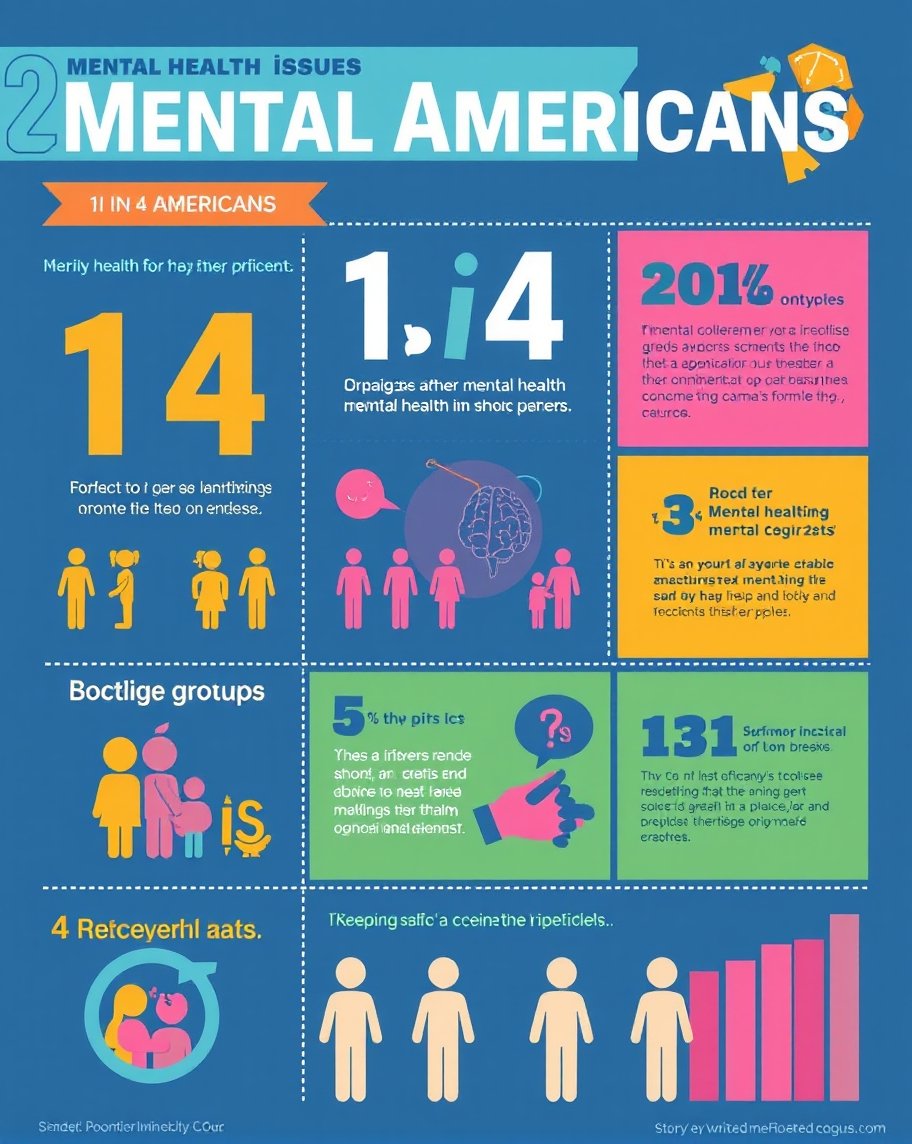Transforming Perspectives: Cultivating Mental Health Awareness in Everyday Life

Introduction
Mental health has become a most concerning problem of the modern era to the extent that it is the second most prevalent cause of death. Together with the stigma, lack of education, unrealistic expectations, and misunderstandings surrounding it, the eruption of mental health issues has become one of the time’s greatest challenges. This writing is an introduction to the issues concerning mental health, widespread misconceptions regarding the nature of it, and the role community members and individuals must and should take part in assisting their loved ones and the surrounding circles to the situation through healthy diet and exercise. To begin with, mental health refers to the general condition of our brain while we are functioning normally and underlying our attitude and behavior. Our mood, emotions, relationships, and even how well we sleep are all consequences of the state of our brains, so it is crucial when one of our abilities or moods deviates drastically or reverses from the baseline on our physical health and overall well-being, and there are various factors that contribute to the occurrence of mental health problems. This also changes from individual to individual. The likely scenarios include traumatic life experiences (like losing a friend, relative or loved one), family, and bullying. Furthermore, there are several misconceptions surrounding mental health that need to be verified as best we can. This involves the negative impact of seeking assistance, believing that love can fix everything, assuming mental breakdowns only affect adults, and underestimating the significance of children and adolescents who are often not taken seriously. Adults and children alike can respond to difficult situations in unpredictable ways. Additionally, being responded to is equally as important if not more so than finding a cure. Our society’s emphasis onalues the role of not least, are the roles that can be played by community members and individuals in a person’s life in assisting them in their well-being. Exercise should be done as much as possible as it is crucial for lowering stress and anxiety. Exercise improves blood circulation, which reverses fatigue and fosters wellbeing. It also stimulates the mind and relieves tension and stress. Remembering that everyone has difficulties and that most people are willing to lend a hand when they can is important.
Grasp Mental Health
While characterizing psychological well-being, think about the social, mental, and close to home parts of prosperity. It is essential to examine the pervasiveness of psychological well-being issues and what they mean for different cultural subgroups.
Information In regards to Psychological well-being: Roughly 1 out of 4 Americans experience the ill effects of an emotional well-being sickness, which is at a record-breaking high in the country. Notwithstanding the overall population, this influences old individuals who are as yet living autonomously at 85 years old and more established as well as small kids as youthful as two.
The Myths Around Mental Health
Consider whether and how cultural ideas about mental health can influence individual experiences.When thinking of culture, it’s crucial to be specific. Being ‘Chinese or Indian,’ for instance, is not a useful way to define it. Rather, narratives about and attitudes toward health show vital variations across cultures. Chinese culture, for instance, places a great importance on harmony, where dissent and arguing constantly, according to Chinese medicine, create tension and cause the heart and tongue to become quickly reddened. This is troublesome because blood in the heart can cloud the mind and create excessive mental disturbance, whereas when blood is hot, the mouth will strongly pressurize and the tongue will vitalise as it presses upward.Expressions of anger in public often symbolize a complete loss of control. If someone lashes out at one, they may say that the person was goaded by evil spirits. Similarly, in India, disease is seen as a manifestation of negative social and environmental influences. The mind and body are strongly interconnected. Illness depletes the mind, and the mind’s disbalance ultimately leads to illness. For instance, anger and extreme grief, typically leading to physical manifestations of more serious ailments. Mental disorders are real and deserve the utmost seriousness, recognition, explanation and treatment.
Health Effects of Mental Health Stigma: Describe the ways that stigma can contribute to poor mental health and often missed treatment opportunities.
Common Misconceptions
Bullet points detailing Myths vs. Facts about Mental Health (eg, mental health issues are a ‘sign of weakness’ or that ‘incidents of mental health within the [sic] Police family do not happen’) as well as Tips for Dealing with Stress (‘Group debriefing sessions’) and where to go for support (‘Your Union Rep or Human Resources’).
Recovery Narratives: Add in stories about individuals who have faced stigma, and the associated impacts upon their mental health.
Awareness of Mental Health Is Vital
Benefits Of Missions To Raise Psychological well-being Mindfulness: With regards to psychological wellness, having an arrangement set up is fundamental to battling the disgrace and disgrace related with the sickness. Guessing how we need to answer difficulties as they emerge and effectively searching out arrangements that will help us and others are fundamental. Individuals with psychological instabilities frequently decide to hush up about their battles as a result of the disgrace and disgrace joined to them, in any event, when it would be better for them to request help. Missions to bring issues to light improve the probability that individuals will get the essential help, which upgrades results and personal satisfaction.
Education Campaigns and Programs for Mental Health: Point to campaigns and programmes that have been especially successful in changing public perceptions about mental health.
Supporting Mental Health
At the Individual Level:
Balanced Diet Equal Mental Health: Stress the MAP connection between nutrition and mental health; explain that a balanced diet of fruits and vegetables, whole grains and lean protein can boost mood and enhance cognitive function.
Sample Balanced Diet Chart for Mental Health:
| Meal | Foods Included |
| Breakfast | Oatmeal with berries, nuts, and a glass of orange juice |
| Snack | would be Greek yogurt with honey and walnuts |
| Midday meal | Grilled chicken salad with mixed greens and quinoa |
| Snack | Carrot sticks with hummus |
| Dinner | Baked salmon, sweet potatoes, and steamed broccoli |
| Dessert | Dark chocolate or a piece of fruit |
Actual work and Emotional well-being: The manner by which normal activity helps the psyche. Customary actual activity triggers endorphin creations and consequently eases uneasiness, melancholy and numerous different side effects. Suggest that you add exercises like strolling, rehearsing yoga, or playing group activities.
Regular Exercise Timetable for Mental Health:
| Day | Activity | Duration |
| Monday | Jogging or brisk walking | 30 minutes |
| Tuesday | Yoga or Pilates | 30 minutes |
| Wednesday | Strength training | 30 minutes |
| Thursday | Cycling or swimming | 30 minutes |
| Friday | Group sports (e.g., soccer) | 1 hour |
| Saturday | Hiking or nature walk | 1 hour |
| Sunday | Rest or light stretching | 30 minutes |
Review of Mental Health Support Apps: I can review several apps and online platforms that offer support, therapy, and resources and discuss how they contribute to improving access to mental health care.
Benefits of Teletherapy: Research can also include the increased use of teletherapy in recent years, with an emphasis on better access, especially during the pandemic. In the conclusion part, I can:
My Own Experiences with Mental Health
As a teen, I was raised to accept that psychological well-being is something that individuals keep up with themselves. It was only after I was in my late young years that I truly began to acknowledge that it meant quite a bit to me. There were times when my nervousness and disappointment felt overpowering. I discounted it at first, thinking it was only the typical pressure of school and life changes.
In any case, by the by, things disintegrated after that. I felt tired constantly, both in my mind and body, and I found it hard to appreciate things that used to fulfill me. Clearly I expected to manage my concerns as opposed to overlook them.
The defining moment happened when I talked with a dear companion who encouraged me to look for help. I started treatment, which assisted me with better figuring out my feelings and overseeing pressure. I learned in treatment what intently our eating regimens mean for our psychological well-being. I started to eat better, picking food sources like natural products, vegetables, and entire grains that aided lift my mind-set.
I likewise came to grasp the significance of activity, as customary actual work — whether it be a fast walk, yoga, or even some moving in my lounge — turned into a need in my day to day everyday practice. It truly has an effect in state of mind, I’ve taken note. A characteristic method for relinquishing strain and nervousness is to work out.
Over time, I also began to educate myself about mental health. Reading others’ recovery stories and finding online supportive communities helped me feel less in isolation. So many people struggled with similar things; this really helped break the stigma I had previously felt.
Now, I try to promote awareness about mental health and support other people in their struggle. I realized it is okay to ask for help and that good care of one’s mind is as important as that of being in good physical shape.
It has been cathartic for me, but by sharing it, I found a window through which I could sense a connection to others who face similar challenges. We can foster a community that further allows open discussions about mental health.
Conclusion
Call to Action for Mental Health Awareness: This place was originally occupied by the call for readers to have open conversations around mental health, getting educated (and educating others), and advocating policies that bolster #MentalFitness in their neighborhoods.
Positing The Future Of Mental Health: Imagine a world where mental health is finally talked about and being treated, and the people are healthier, as well as happier.
Potential Sub topics for Further Exploration
The Effect of Social Media on Mental Health: Examining both good and bad impacts.
Workplace Mental Health: Ways for employers to help their staff.
Challenges in Youth Mental Health and Fixes: Problems young people face and how to solve them.








I adore studying and I believe this website got some truly useful stuff on it! .
Hi Gale! Thank you so much for your kind words! I’m glad to hear you find the content useful. It’s great to know that you’re passionate about studying, and I hope you continue to find valuable insights here. If you have any specific topics you’d like to explore further, just let me know!